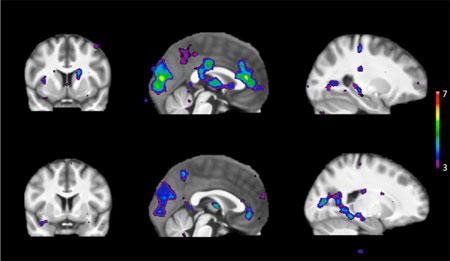The reaction of the brain to smoking depends on the genes
Last reviewed: 17.10.2021

All iLive content is medically reviewed or fact checked to ensure as much factual accuracy as possible.
We have strict sourcing guidelines and only link to reputable media sites, academic research institutions and, whenever possible, medically peer reviewed studies. Note that the numbers in parentheses ([1], [2], etc.) are clickable links to these studies.
If you feel that any of our content is inaccurate, out-of-date, or otherwise questionable, please select it and press Ctrl + Enter.
Have you ever been surprised by the ability of some people to calmly quit smoking? And this is when so many millions of smokers are powerless to overcome this deadly affection.
In the arsenal of smokers there will be another justification for their impotence against tobacco dependence.

As it turned out, it's not just a big desire or unwillingness to quit smoking, but in the genes that are responsible for the formation of dependence on nicotine.
Scientists of the Montreal Neurological Institute have found that people with a fast metabolism of nicotine, which is genetically determined, have a more pronounced brain reaction than those who have nicotine metabolism slower.
Thanks to the results of this study, scientists will be able to develop programs to rid people of nicotine addiction.
Smoking associations, such as a cigarette or seeing its use, provoke a relapse and the habit returns again.
The enzymes of the liver respond to the metabolism of nicotine. Changes in the gene that encodes this enzyme determine the metabolic rate, and hence the level of nicotine in the blood, reaching the brain.

Scanning shows areas of brain activity in response to stimuli in people with a fast metabolism of nicotine (upper row) and a slow metabolism of nicotine (lower row)
As part of their research, specialists analyzed the levels of nicotine metabolism and the genotype of the liver enzyme.
Volunteers who participated in the experiment smoked from 5 to 25 cigarettes a day. Observation of them lasted more than two years. Using magnetic resonance imaging, specialists measured the rate of nicotine metabolism in people with the highest and lowest levels.
It turned out that in people with a rapid metabolic rate, the brain reaction (especially in areas related to motivation, encouragement and memory) to visual stimuli associated with smoking was significantly more intense.
"This reaction confirms our hypothesis that the brain of people with a fast metabolism of nicotine reacts more to such stimuli. This is due to the daily use of cigarettes and irregular nicotine concentrations in the blood. In other words, such people associate smoking cigarettes with nicotine jumps, - says study co-author Alan Dager. - Conversely, people with a slow metabolism of nicotine, which have a relatively constant level of nicotine in their blood throughout the day, are less likely to develop conditioned reflexes to such stimuli. Their smoking is not associated with nicotine leaps, because they smoke for other reasons. Possible causes of smoking of such people - relief from a cigarette smoked in a stressful situation or the maintenance of cognitive stimulation. "
Continuation of research in this direction will help to create various methods of treating nicotine-dependent people.
